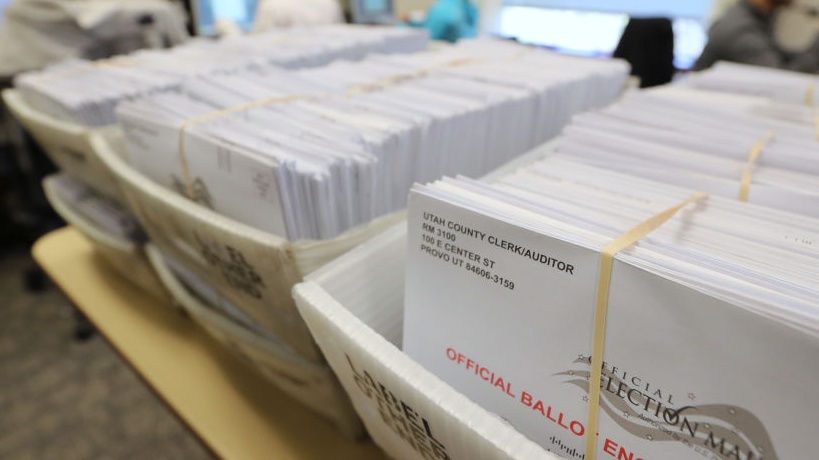People can ensure they are participating in this year's primary election amid the coronavirus by mailing in their ballots.
There are a few caveats to note if you are voting via mail for the first time or if you're wondering how elections are going to play out during the coronavirus pandemic.
Here's everything you should expect if and when you are voting by mail.
1. You can still vote in the primaries in the following states
As of March 23, Connecticut, Delaware, Indiana, Kansas, Montana, Nebraska, New Jersey, New Mexico, New York, Oregon, Pennsylvania, Rhode Island, South Dakota, Washington, D.C., West Virginia and Wisconsin are states where eligible voters can participate in primary voting via mail, the ACLU reported.
However, all of these states' primaries have different deadlines to be mindful of, some of which are coming up soon, so proactivity is key.
2. Patience will be required
Many states won't be readily prepared to count the millions of paper ballots from homebound voters. The voting-by-mail process could take days, maybe even weeks, after election night. Instead of letting your anxiety about the results get the best of you, just be patient.
3. Lawmakers are working to extend voting bills
With most states recommending or ordering citizens to stay at home, some politicians will want to expand the voting-by-mail option.
Senators Ron Wyden, D-Ore., and Amy Klobuchar, D-Minn., introduced a bill that expands both in-person early voting and no-excuse absentee vote by mail, requiring states to have backup plans in case of emergencies like the coronavirus, according to a press release.
4. Prepare to see a lot of digital campaign ads on social media
Push cards, canvassers and door-to-door campaigners are less likely to be a factor in this election. Instead, campaigns now have an excuse to be more aggressive in their approach, flooding you with ads on social media, knowing you will probably be home all day.
5. You're still responsible for voting
The 2020 election is going to happen regardless, with neither the states nor the president having the power to delay the general election. If you change addresses or update any personal information that could affect you voting in the primary or general election, you have to ensure these changes are properly made, especially if voting by mail could be your state's only option.
6. Don't lick the envelopes
It's a minor suggestion, but it could prevent you from getting sick from home. Vote-by-mail ballots will probably be a norm for a significant number of 2020 voters, and licking the envelopes on these mail orders is not advised. Instead, gently wet the envelope seal with water.
During the Washington state primary, the Department of Health suggested alternative methods to seal your ballot.
As recommended by @WADeptHealth, please use alternative methods to seal your ballot return envelopes, such as a wet sponge or cloth.
Washington’s Presidential Primary is March 10. Use a ballot drop box to return your ballot by 8 p.m. Election Day. #waelex
pic.twitter.com/UOk8Ld4Z3m— WA Secretary of State (@secstatewa) March 3, 2020
7. Please, can you stay indoors?
Even if you're not voting, the most important takeaway is to stay indoors as much as you can.
